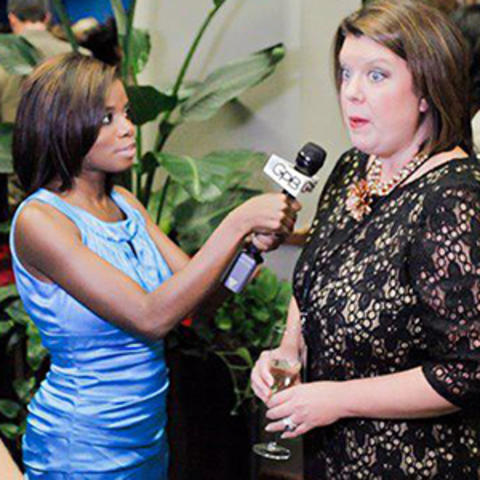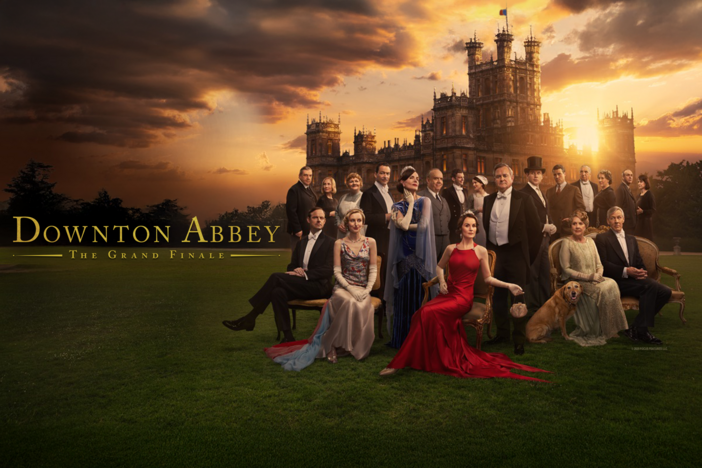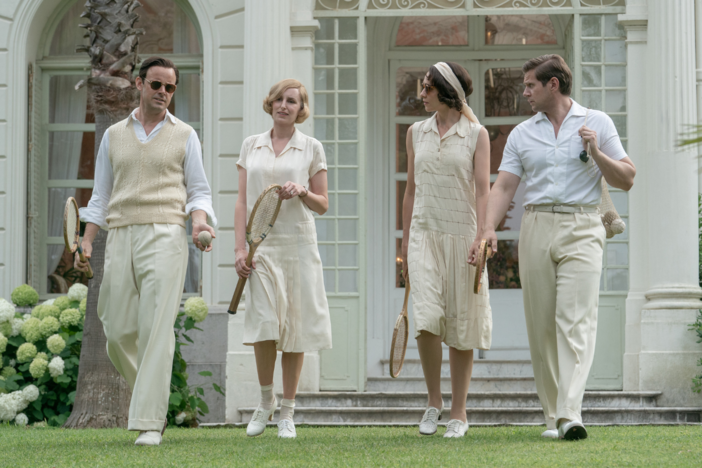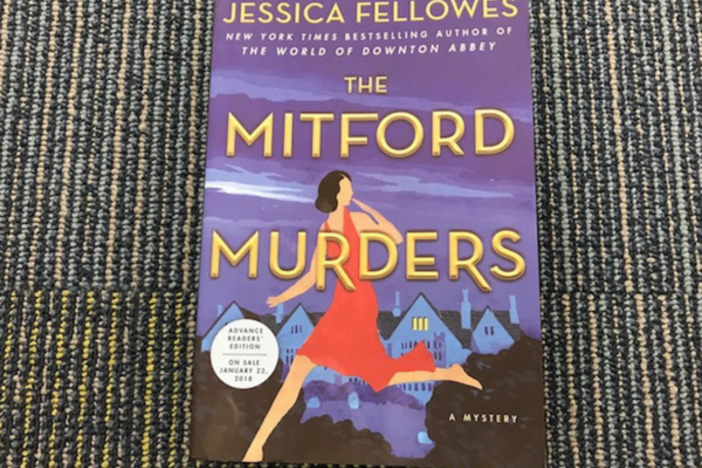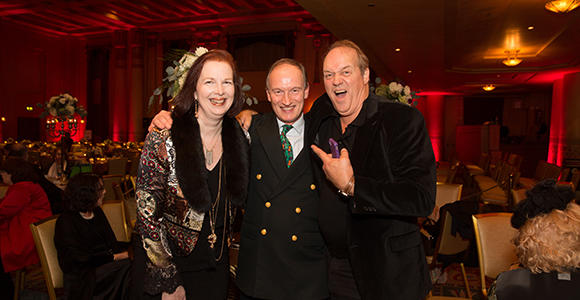
Section Branding
Header Content
Alastair Bruce, Downton Abbey's "Mr. Manners", Answers Your Questions Part 2
Primary Content

In the second part of my interview with "Downton Abbey" historical advisor Alastair Bruce, he answers a fan question from @JeannieBinVA about why the staff lines up outside the estate to greet visitors. He also addresses @Dowager4Days inquiry about whether Downton characters are based in real people from the past. (Read part one of the interview here.)
You can hear Bruce share his personal story in an interview with Bill Nigut on Two Way Street that airs Saturday, January 10 at 4 p.m., replays at Sunday, January 11 at 11 a.m. and will be posted online.
"The Oracle" as he is called really enjoys delivering British history to American audiences as he finds that Americans appreciate it more than Brits do. See him in action in the special "The Manners of Downton Abbey". (Think he should do more specials like this? Write to PBS about it!)
Desperate for Downton: (From co-blogger Rachel Buchman) What rules if any have changed or have been dismissed over the course of the five seasons of “Downton Abbey”?
Bruce: I’ve dismissed none.
Desperate for Downton: None?
Bruce: None.
Desperate for Downton: So basically what you’re saying is from that decade starting from 1912 to where they are now – everything was pretty much the status quo?
Bruce: It pretty much started in 1837 when Queen Victoria came to the throne. Up until that point we had kings who had lived a very indulgent life and therefore the aristocracy felt they could do the same. With Queen Victoria’s arrival in 1832 and particularly with her husband’s arrival in her life in 1840 – a totally new expectation was placed upon not only the royal family but then by mimicking the royal family all the aristocracy to set a better example in society. And also those who were less fortunate, were gaining more and more rights and opportunities and so they needed to be given a better and better example of how to live a (temperate) life and to be honest that role for the aristocracy didn’t end until the fifties.
It was the sixties when everyone just falls apart and has a really good time and goes to Woodstock.
Desperate for Downton: (Here’s a fan question from JeannieBinVA): I am always taken by the convention of the household (but not Daisy – she says ) interrupting their day and taking time…
Bruce: Poor Daisy – I adore Sophie who plays Daisy and I think Daisy is one of the absolute stalwart stars of our show because quite apart from anything else – she’s given one outfit per series, which is her grubby (dress) to go down to scrub a way the kitchen. You know in every society – there’s always someone in Daisy’s position. And I always think they are the most special and the most fascinating because they are generally facing more hardship than anybody else.
Desperate for Downton: And she carries it so well!
Bruce: But forgive me, I didn’t mean to leap down the throat of your blogger (fan question) – you give me the rest of the question.
Desperate for Downton: So the rest of the question is – she’s fascinated how the household staff (Daisy sometimes) interrupts their day and takes time to line up outside the house or inside the hall to greet visitors so when and why did that become the custom? Did the number of visitors have anything to do with how many servants lined up? And how long into the 20th century was that custom observed?
Bruce: With respect to the question if you sort in an exam, you read what the other ones were before you answer it – well the answer is that it’s entirely up to the chatelaine (that is the a woman in charge of a large house) when she asks the butler to turn out the staff.
And it was really just a gesture that could be done either for the return of Lord Grantham or for some special visitor. But it didn’t really matter whether they did it or didn’t. So it’s up to the chatelaine who runs the house whether she does it.
But I must say it is an opportunity to see the whole household and remember it was all about delivering appearance, splendor, perfection. And running it in a way that captivated the visitor – made them feel gosh this is special.
And I think that that is why it worked so well. And that’s why they did it and I think it’s why it’s splendid to look at.
Desperate for Downton: (From fan @CarrieChristie): What kind of research is done with regard to the evolution and the vernacular as the years pass on “Downton”?
Bruce: Julian does all of that and he’s an absolute expert on what was in use at the time. A lot of people try to catch him out, but I think they are on a losing wicket as we say in England.
Desperate for Downton: (From @Dowager4Days): Any characters based (on) historical figures? Is Lord Grantham based on a historical figure?
Bruce: Lord Grantham is the embodiment of a large number of people like Lord Grantham. All the events that are portrayed in the “Downton Abbey” story have happened somewhere. And Julian has just brought all of these facts and figures and brought them to come to life on “Downton Abbey”.
So it’s unrealistic that they should all be happening in one house but it does keep us going and you know you don’t have a drama if everyone is happy and everyone has money. And everyone is blissfully happy and married. You can only get a drama if everyone is being as naughty as life challenges some people to be.
And yet it’s probably true that for instance, something like do you remember the Turkish diplomat called Pamuk who dies in Mary’s bed as a sort of Private Benjamin moment?
Desperate for Downton: Well said!
Bruce: He is based on a fact. Something that happened in a house, it did occur. But my goodness it was a pretty powerful thing bringing it into our story. I think that worked very well.
Desperate for Downton: That made me say about the show – this is not your grandmother’s Masterpiece theatre because this is a lot spicier than I remember Masterpiece theatre to be.
Bruce: I remember in the first episode of the first series, Thomas has a kiss with a duke.
Desperate for Downton: Oh yes!
Bruce: And two men kissing was not normal, television entertainment at that time.
Desperate for Downton: That’s right.
Bruce: I think increasingly society is becoming a lot more tolerant of the realities of the world and I think we accept human nature far more than we did even then. And that’s to the credit of people’s changing attitudes too and a more understanding world. I think it further underscores how tough it was for people like Thomas who have no power because they were below stairs - a duke who had only to say something and he could kill off the future prospects of somebody like Thomas.
He could just deny it. And I think that needed to be brought to life because we’re not trying to portray a perfect time because it was not a perfect time. We’re just portraying that it was just as imperfect as today.
Desperate for Downton: What would you like us to get out of the special, the “Manners of Downton Abbey”?
Bruce: I want you to enjoy the fact that we are trying really hard to display something that’s totally different not just in terms of a good story but that we’re putting a lot of effort into making the environment for that narrative to be entertaining and I’ve enjoyed doing it and I hope people will enjoy the way I do it because I want to do more for PBS.
I’d like to do more stories and more history (for) Americans because Americans appreciate British history far better than the British do. And that’s why I love coming here!
In the second part of my interview with "Downton Abbey" historical advisor Alastair Bruce, he answers a fan question from JeannieBinVA about why the staff lines up outside the estate to greet visitors. He also confides why he feels Americans appreciate British history more.

